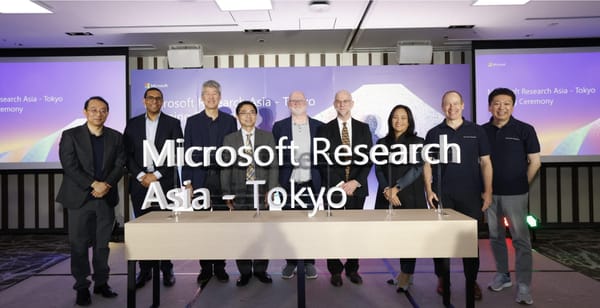Table Of Contents
In a move that underscores the growing importance of artificial intelligence (AI) and robotics in global tech strategies, Microsoft has opened its first dedicated robotics and AI research lab in Japan. The new facility, known as Microsoft Research Asia Tokyo, is part of Microsoft’s broader initiative to strengthen its research and development capabilities worldwide. This lab will focus on integrating AI with robotics to drive innovation across various sectors, including manufacturing and healthcare.
The decision to establish this research center in Japan is not coincidental. Japan has long been a leader in robotics, and by partnering with local universities and tech companies, Microsoft aims to leverage the country’s cutting-edge expertise. Peter Lee, the head of Microsoft’s research division, emphasized that Japan’s robotics leadership was a significant factor in the company’s decision to locate the lab there.
AI and Robotics: A New Frontier for Innovation
The Microsoft Research Asia Tokyo lab will primarily focus on a concept known as “embodied AI.” This emerging field aims to develop AI that interacts with the physical world in real-time, enhancing the capabilities of robots in industries like manufacturing, healthcare, and more. Embodied AI is expected to revolutionize these sectors by enabling machines to perform complex tasks with greater autonomy and efficiency.
The lab’s researchers will collaborate closely with major Japanese universities and corporations to push the boundaries of what AI and robotics can achieve. By integrating AI with robotic systems, Microsoft hopes to create solutions that can operate in real-world environments, allowing for more significant advancements in areas such as automation, smart factories, and even personalized healthcare.
Japan: A Strategic Hub for Microsoft’s AI Goals
This move is part of a broader trend where global tech giants are investing heavily in Japan. Along with Microsoft, companies like Oracle and Amazon Web Services are also expanding their research and data infrastructure in the country. Japan’s robust technological ecosystem, coupled with its leadership in robotics, makes it an ideal location for AI-driven research and development.
By tapping into Japan’s established robotics industry, Microsoft aims to accelerate its AI innovations. The collaboration with local academic institutions and businesses will not only foster cutting-edge research but also create new opportunities for AI applications that can benefit multiple industries. This strategic positioning could give Microsoft a competitive edge in the global AI race.
AI and Robotics for a Better Future
The potential applications of AI-enhanced robotics are vast. In manufacturing, AI-driven robots can increase operational efficiencies, reduce costs, and improve precision in tasks. In healthcare, embodied AI could lead to the development of robotic assistants capable of performing surgeries or providing personalized care to patients. Such advancements could significantly improve the quality of life for people worldwide.
Microsoft’s efforts in Japan could also help shape global AI policies and standards. By conducting research in a country that is at the forefront of technological innovation, the company is positioning itself as a leader in both AI and robotics. This collaboration between global and local expertise will likely lead to breakthroughs that could redefine industries and set new benchmarks for AI applications.
With the launch of its first robotics and AI research lab in Japan, Microsoft is making a significant statement about the future of innovation. By focusing on embodied AI and collaborating with Japan’s top universities and companies, the tech giant is positioning itself to lead the next wave of advancements in both AI and robotics. These efforts will not only benefit industries like manufacturing and healthcare but also set the stage for new AI-driven breakthroughs that could have a lasting global impact.
This latest development is yet another indication that the fusion of AI and robotics will be a defining force in the future of technology. For Microsoft, this lab represents a crucial step in realizing its vision of a world where AI and robotics work together seamlessly to solve complex real-world problems.


